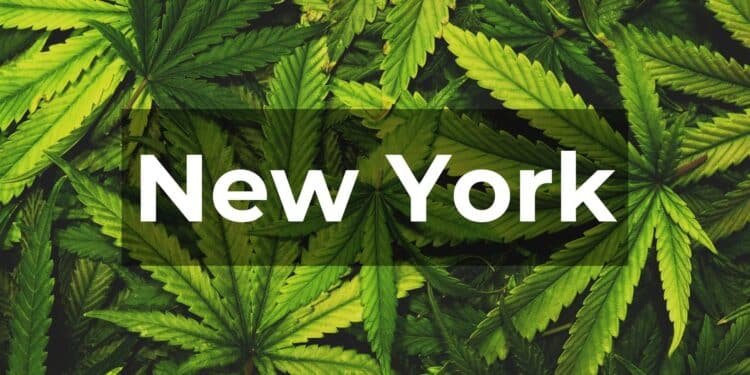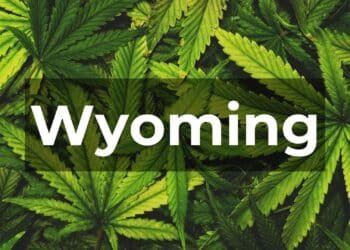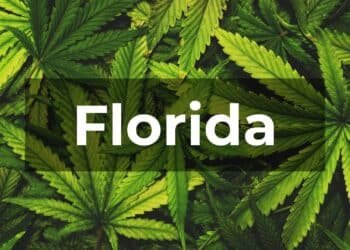Welcome to our guide on marijuana laws in New York! If you’re curious about the legality of cannabis in the state, you’ve come to the right place. In this article, we’ll provide you with a comprehensive overview of current laws and regulations surrounding marijuana in New York. So, is marijuana legal in New York? Let’s find out!
Marijuana Laws in New York
Currently, marijuana is legal for medical use only in New York. The Compassionate Care Act, which was signed into law in 2014, allows patients who are suffering from certain qualifying conditions to use medical marijuana. However, recreational use of marijuana is still illegal, but this may change soon with the new Marijuana Regulation and Taxation Act.
Under the Compassionate Care Act, patients with conditions such as cancer, HIV/AIDS, Parkinson’s disease, epilepsy, and others can obtain medical marijuana with a prescription from a registered practitioner. In addition, patients must be certified by the state’s Department of Health and obtain a medical marijuana ID card. The card allows patients to purchase and possess up to a 30-day supply of medical marijuana.
While medical marijuana is legal in New York, there are still strict regulations surrounding its use. Patients are not allowed to smoke marijuana, but can only use it in forms such as tinctures, oils, capsules, and other non-smokable forms. Additionally, patients are restricted from using medical marijuana in public places.
Penalties for breaking New York’s marijuana laws can vary depending on the offense. Possession of less than 25 grams of marijuana is considered a violation and can result in a fine of up to $100. Possession of more than 25 grams is considered a misdemeanor and can result in up to three months in jail and a fine of up to $500.
Marijuana Laws in New York
The new Marijuana Regulation and Taxation Act, which was signed into law in March 2021, is expected to legalize recreational marijuana use for adults over the age of 21. The act will create a new regulatory system for the cultivation, distribution, sale, and taxation of marijuana in New York.
Under the new law, adults will be allowed to possess up to three ounces of marijuana and can grow up to three mature and three immature plants for personal use. The act also includes a social equity program that will provide resources and opportunities for people who have been disproportionately affected by marijuana prohibition and the criminal justice system.
The new Marijuana Regulation and Taxation Act will go into effect once regulations have been established by the state’s Office of Cannabis Management, which is expected to take at least one year.
| Offense | Penalty |
|---|---|
| Possession of less than 25 grams | Up to $100 fine |
| Possession of more than 25 grams | Up to three months in jail and up to $500 fine |
In addition to penalties for possession, it is also illegal to sell or distribute marijuana in New York. Penalties for selling or distributing marijuana can range from a misdemeanor to a felony, depending on the amount of marijuana involved.
Overall, the laws surrounding marijuana use in New York are complex and rapidly changing. As the state moves towards legalization of recreational use, it’s important for individuals to stay informed and educated about the latest developments in marijuana laws and regulations.
The New Marijuana Regulation and Taxation Act
The New Marijuana Regulation and Taxation Act was signed into law by Governor Cuomo in March 2021, legalizing recreational marijuana use for adults aged 21 and over in New York State. This act marks a significant shift in the state’s stance on cannabis, which was previously only legal for medicinal purposes.
The New Marijuana Regulation and Taxation Act allows individuals to possess up to three ounces of marijuana for personal use and allows for the cultivation of up to six plants per person, or up to 12 plants per household. The act also establishes a licensing and regulation system for the cultivation, processing, distribution, and sale of cannabis products in the state.
Under the new regulations, the state will tax cannabis sales at 9% state tax and 4% local tax, with an additional tax based on the level of THC content. The revenue generated from these taxes will be used to fund public education, drug treatment programs, and community grants.
The New Marijuana Regulation and Taxation Act also includes provisions for the expungement of past marijuana-related convictions, with an estimated 150,000 convictions eligible for expungement.
The Impact of the New Marijuana Regulation and Taxation Act
The New Marijuana Regulation and Taxation Act is expected to have a significant impact on the marijuana industry in New York, with the potential to generate billions of dollars in revenue and create thousands of jobs. It is also expected to reduce the number of arrests and convictions related to marijuana, which have disproportionately affected communities of color.
The act has been met with both support and opposition, with some applauding the social justice provisions and economic benefits, while others raise concerns about public safety and the potential for increased drug use.
Overall, the New Marijuana Regulation and Taxation Act represents a major shift in the state’s approach to cannabis, and its impact will be closely watched by policymakers, business owners, and residents alike.
Possession Laws in New York
While New York state has recently legalized recreational marijuana use for adults, there are still restrictions in place related to possession. It’s important to understand these laws to avoid legal consequences.
As of March 31, 2021, adults in New York can possess up to three ounces of marijuana for personal use, which includes smoking, vaping, or ingestion. Possession of between three and eight ounces is considered a violation, punishable by a fine of up to $200. Possession of more than eight ounces is considered a misdemeanor, which can lead to up to a year in jail and/or a fine of up to $1,000.
It’s important to note that these possession laws only apply to marijuana that has been legally obtained. Any possession of marijuana that has been illegally obtained, such as through drug trafficking, is still illegal and can lead to serious legal consequences.
Additionally, it’s important to understand that possession is still not allowed in certain places, including schools, public transportation, and public housing. Driving under the influence of marijuana is also illegal and can lead to serious legal consequences.
If you are caught in possession of marijuana in New York, it’s important to remember that you have the right to remain silent and to speak with an attorney before answering any questions or making any statements.
Cultivation and Distribution Laws in New York
In New York, the cultivation and distribution of marijuana is regulated by the Marijuana Regulation and Taxation Act. This act was signed into law in 2021 and allows for the cultivation, distribution, and sale of marijuana for adult-use.
Individuals or businesses interested in cultivating or distributing marijuana must obtain a license from the state. The licensing process is expected to begin in the near future, and more information will be released as it becomes available.
There will also be regulations related to the cultivation and distribution of marijuana. These regulations will cover areas such as packaging, labeling, and product safety standards. The goal of these regulations is to ensure that marijuana products are safe for consumption and do not pose a threat to public health.
Penalties for breaking the laws related to marijuana cultivation and distribution can be significant, including fines and imprisonment.
| Laws | Possession Limits | Possible Penalties |
|---|---|---|
| Cultivation Laws | No personal cultivation allowed without a license | Fines, imprisonment |
| Distribution Laws | Must obtain a license from the state | Fines, imprisonment |
If you are interested in starting a cultivation or distribution business in New York, it is important to stay up to date on the latest regulations and requirements. You can find more information on the New York State Department of Health website.
Medical Marijuana Use in New York
Medical marijuana use is legal in New York, but only for specific qualifying conditions. These include:
- Cancer
- HIV/AIDS
- ALS
- Parkinson’s disease
- Multiple sclerosis
- Epilepsy
- Inflammatory bowel disease
- Neuropathy
- Huntington’s disease
To obtain medical marijuana in New York, patients must first be certified by a registered physician and then apply for a Medical Marijuana ID Card through the New York State Department of Health. Once approved, patients can purchase medical marijuana from a state-licensed dispensary.
It’s important to note that while medical marijuana use is legal in New York, there are still restrictions on where it can be used. It is illegal to use medical marijuana in public places, on school grounds, or in the workplace.
Recreational Marijuana Use in New York
As of March 31, 2021, New York has legalized the use of recreational marijuana for adults aged 21 and over. This means that individuals can possess and use up to three ounces of marijuana for personal use. Additionally, residents can grow up to three mature and three immature plants for personal use, but only if they are in a secure location where the plants are not visible to the public.
It is important to note that while recreational marijuana use is now legal in New York, there are still restrictions on where it can be consumed. It cannot be smoked in public areas, and property owners and landlords are within their rights to prohibit smoking on their premises. Additionally, it is illegal to drive under the influence of marijuana.
Breaking the laws related to recreational marijuana use can result in penalties, including fines and potential imprisonment. It is important to fully understand the regulations before participating in recreational marijuana use in New York.
What are the penalties for breaking the recreational marijuana laws in New York?
Breaking the laws related to recreational marijuana use in New York can result in different penalties depending on the offense. Possession of more than the legal limit of three ounces can result in a fine of up to $200 and potential imprisonment of up to 60 days for a first-time offender. Possession of more than eight ounces of marijuana is considered a felony offense and can result in more severe penalties.
Consuming marijuana in public areas or smoking in areas where it is prohibited can also result in penalties. This can include a fine of up to $200 for a first-time offender, and up to $500 for a second offense committed within three years of the first.
It is important to fully understand the laws and regulations related to recreational marijuana use in New York to avoid breaking the law and facing potential penalties.
Impact on the Criminal Justice System
Since the passing of the Marijuana Regulation and Taxation Act, there has been a significant impact on the criminal justice system in New York. The act includes provisions to expunge records of those who were previously convicted of low-level marijuana offenses, which has helped to reduce the number of individuals incarcerated for non-violent drug offenses.
Additionally, the act has changed the way that law enforcement officers approach marijuana-related offenses. It has been reported that arrests for low-level marijuana offenses have decreased since the act was signed into law, indicating a shift away from the previous enforcement policies.
The impact of these changes on the criminal justice system is significant. It has helped to reduce overcrowding in prisons and has allowed law enforcement to focus on more serious offenses. It has also provided relief to many individuals who were previously burdened by non-violent drug offenses on their criminal records.
Business Opportunities in the Marijuana Industry
If you’re interested in starting a marijuana-related business in New York, there are several opportunities available. The legalization of recreational marijuana has opened up a new industry in the state, and there are many different niches to explore.
One of the most popular business opportunities in the marijuana industry is cultivation. With the legalization of recreational use, there is increased demand for high-quality cannabis products. Cultivation facilities are cropping up all over the state, and there is plenty of room for growth in this area.
Another option is opening a dispensary. As more people begin to explore the benefits of cannabis, there is a growing need for safe and reliable access to a variety of products. Opening a dispensary can be a profitable venture, but it requires extensive knowledge of the products and regulations surrounding their sale.
ancillary businesses to the marijuana industry are also thriving in New York. These include businesses that provide equipment, packaging, and branding services. There are also opportunities to offer consulting services to individuals or businesses looking to enter the cannabis industry.
However, it’s important to note that starting a business in the marijuana industry is not without its challenges. There are strict regulations governing the cultivation, distribution, and sale of cannabis products, and it’s important to stay up-to-date on the latest changes to the laws. Additionally, capital requirements can be high, and competition can be fierce in some areas of the market.
Overall, the marijuana industry in New York is ripe with opportunities for those willing to put in the work. With the right knowledge and resources, it’s possible to build a successful business in this growing field.
FAQ: Frequently Asked Questions About Marijuana Legalization in New York
As marijuana legalization continues to evolve in New York, it’s natural to have questions about the laws and regulations surrounding it. Here are some of the most commonly asked questions:
Is Marijuana Legal in New York?
Yes. In March 2021, New York Governor Andrew Cuomo signed the Marijuana Regulation and Taxation Act into law, legalizing recreational marijuana for adults over the age of 21.
What Are the Marijuana Laws in New York?
Under the new law, adults over the age of 21 can possess up to three ounces of marijuana for personal use. However, it is still illegal to smoke marijuana in public, and driving under the influence of marijuana is prohibited. Medical marijuana is also legal in New York for patients with qualifying conditions.
What Are the Penalties for Breaking Marijuana Laws in New York?
Penalties for breaking marijuana laws in New York vary depending on the offense. Possession of more than three ounces of marijuana is considered a Class A misdemeanor, which carries a maximum penalty of one year in jail and a fine of up to $1,000. Cultivation of marijuana without a license is considered a Class D felony, which carries a maximum penalty of seven years in prison and a fine of up to $5,000. Repeat offenses can result in more severe penalties.
What Are the Cultivation and Distribution Laws in New York?
Under the new law, adults over the age of 21 can grow up to six marijuana plants at home for personal use. However, the sale of marijuana is still only allowed through licensed dispensaries. It is illegal to distribute marijuana without a license, and penalties for doing so can include fines and jail time.
How Do I Get a Medical Marijuana Card in New York?
To qualify for medical marijuana in New York, you must have a qualifying condition such as cancer, HIV/AIDS, Parkinson’s disease, or chronic pain. You must also have a healthcare practitioner certify that marijuana is an appropriate treatment for your condition. Once you have been certified, you can apply for a medical marijuana card through the New York State Department of Health.
Can I Lose My Job for Using Marijuana in New York?
Employers in New York have the right to maintain a drug-free workplace, which means that they can prohibit employees from using marijuana even if it is legal. If your employer has a drug-free policy, using marijuana could lead to disciplinary action including termination.
It’s important to stay up-to-date on the latest marijuana laws and regulations in New York to ensure that you stay within the legal boundaries. If you have any questions about marijuana legalization or its impact on your life, speak with a legal professional or healthcare provider for more information.













